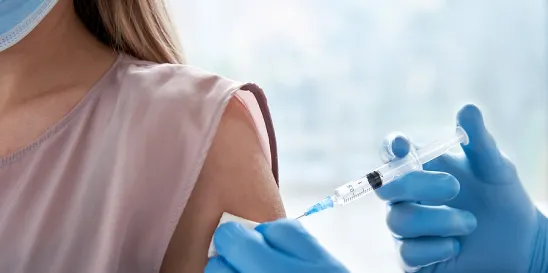Following public hearings and at least 78 public comments, at the end of October, hospitals and other facilities licensed by the Massachusetts Department of Public Health (DPH) will have new flexibility to require both flu and COVID-19 vaccinations for personnel, with attendant potential pitfalls to navigate. The DPH’s new licensure regulations will permit requiring vaccines for a broad group of personnel, unless the individual declines the vaccine. Importantly, however, the new rules will also allow a hospital (or other DPH-licensed facility) to establish its own vaccination requirements that exceed the state regulations, and our sources tell us that DPH’s informal position is that a hospital may mandate vaccinations as a condition of employment. Massachusetts regulations were modified for each category of affected provider: hospitals, clinics, hospice providers, long-term care facilities, adult day health program and emergency medical services systems.
Promptly after publication of the updated regulations, several Massachusetts hospitals reported that they would be reinstating their vaccine mandates for employees in the Fall of 2023.
The threshold vaccination requirements adopted by the Commonwealth are described below:
- Each hospital shall provide all personnel with information about the risks and benefits of influenza vaccine and notify all personnel of the new vaccination requirements for both influenza and Covid.
- This applies to all employees and independent contractors who either work at or come to the licensed facility, whether or not they provide direct patient care. For example, this includes members of the medical staff, contract employees or staff, students, and volunteers.
- The hospital shall, at no cost to any personnel, provide or arrange for vaccination of all personnel who cannot provide proof of current immunization against influenza, unless an individual declines vaccination.
- An individual who declines the vaccine shall sign a statement certifying they are exempt from vaccination and they received information about the risks and benefits of the vaccine.
- For any individual subject to the exemption, a hospital may require such individual take mitigation measures to prevent viral infection and transmission. Typical accommodations may include, for example, mandatory masking, mandatory testing, and remote work.
- The DPH will also establish guidelines and vaccine requirements, which guidelines may determine the categories and priorities of personnel to be vaccinated, the influenza vaccine(s) to be administered, the dates by which personnel must be vaccinated; and any related reporting and data collection requirements. DPH will follow Covid vaccination recommendations established by the Centers for Disease Control.
- A hospital shall not be required to provide or arrange for influenza vaccination during such times that the vaccine is unavailable for purchase, shipment, distribution or administration by a third party, or when complying with a DPH order that restricts the use of the vaccine.
- A hospital shall require and maintain for each individual proof of current vaccination or the individual’s exemption statement as described above.
- Each hospital shall maintain a central system to track the vaccination status of all personnel. If a hospital is unable to provide or arrange for influenza vaccination for any individual, it shall document the reasons such vaccination could not be provided or arranged for.
- Each hospital shall report information to DPH documenting the hospital’s compliance with the personnel vaccination requirements, in accordance with reporting and data collection guidelines of the Commissioner.
An unfortunate ambiguity in the published regulation relating to exemptions for individuals who decline vaccination led to concerns that providers may only implement mitigation measures for such individuals, as opposed to terminating their employment or refusing to hire such individuals based on their declination to receive the vaccine. To date, many organizations permitted exemptions only for employees who qualified for an accommodation to the requirement based on a sincerely-held religious belief or a medical condition. The final clause in the new regulations (added in response to industry comments) should be read as permitting providers to mandate vaccination as a condition of employment. (“Nothing in 105 CMR 130 et seq. shall be read to prohibit hospitals from establishing policies and procedures for COVID-19 vaccination of personnel that exceed the requirements set forth in this section.”)This language makes clear that the new regulation is the baseline, not a limiting policy. DPH senior staff have subsequently confirmed that hospitals and other providers may require vaccination as a condition of employment. Making this clarification explicit in the regulation would be a helpful amendment.
While the new regulations support employer discretion in adopting vaccination requirements, hospitals and other providers are advised to consult with counsel and carefully structure their own policies. For example, providers must ensure that employment decisions made pursuant to vaccination programs comply with not only the DPH regulations, but also the applicable non-discrimination laws such as MGL c. 151B and Title VII. A few years post-pandemic, we have gleaned lessons to inform best practices, which Foley addressed in our earlier post discussing tips for employers seeking to navigate the religious accommodation process.






 />i
/>i
